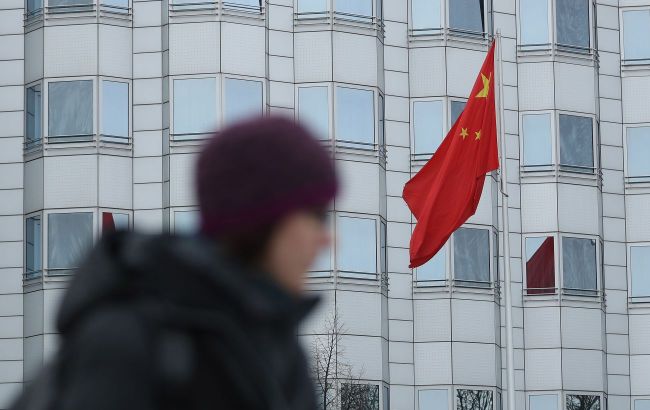China marks disputed island as its own on map: Moscow remains silent
 Russia remains silent on China's annexation of its island (Photo: Getty Images)
Russia remains silent on China's annexation of its island (Photo: Getty Images)
Officials of the Russian Federation have refrained from commenting on China's official map publication that designates the disputed Ussuri Island as part of the PRC's territory, according to The Moscow Times.
China's state-run "Cartographic Service of Standard Maps" presented a set of geographical maps for the year 2023 on August 29, marking the Ussuri Island on the Amur River as part of the PRC's territory.
Despite the 2008 agreement between Russia and China, which divided the island between the two countries, the new official map of China designates the entire island as the easternmost point of Chinese territory. The explanatory note emphasizes that the "map was prepared in accordance with national standards for the delineation of China's borders and those of other countries in the world."
Moscow's muted response
Kremlin Press Secretary Dmitry Peskov did not mention a word about the situation with the map that depicts Ussuri Island as part of the PRC during his daily briefings. Deputy Chairman of the Security Council Dmitry Medvedev, who previously threatened nuclear apocalypse to anyone challenging Russia's territorial integrity, also remained silent.
At the same time, the official spokesperson of the Ministry of Foreign Affairs, Maria Zakharova, stated that Moscow and Beijing maintained a united position that the border issue between the two countries had been finally resolved.
"The resolution of the matter was marked by the ratification in 2005 of the additional agreement on the Russian-Chinese state border in its eastern part, according to which the Ussuri Island was divided between the parties," she noted.
According to the diplomat, the parties have an intricate structure of cooperation in the field of border cooperation, and a joint commission on border issues effectively functions to discuss all relevant matters.
However, deputies of the State Duma, who were suggesting in their personal Telegram channels and on propaganda TV that nuclear bombs be dropped on unfriendly countries, chose not to react to the situation.
Reactions from other neighbors of China
The Chinese map, which has been regularly published since 2006, has provoked protests from several Asian states. The Philippines referred to it as a violation of international law, as it designates their territorial waters in the South China Sea as part of the PRC's jurisdiction.
Malaysia also expressed protest, revealing that its waters were marked as Chinese territory on the map. Even the Indian state of Arunachal Pradesh was claimed as part of China's territory on the map, which drew anger from the Indian Ministry of Foreign Affairs.
"We have expressed a strong protest through diplomatic channels against China's so-called 'standard map,' which claims India's territories," said Minister of External Affairs Arindam Bagchi.
China-Russia relations
China has strengthened its ties with Russia since the start of the full-scale invasion. Particularly, Beijing declined to join the sanctions imposed by the United States against the aggressor country.
China and Russia share a mutual interest in challenging U.S. dominance in the global order, as their relationships with democratic nations become increasingly strained.
The United States has repeatedly warned China against assisting Russia in its war against Ukraine or aiding in evading sanctions.
Moreover, China holds influence over Russia. Chinese leader Xi Jinping personally warned Russian dictator Vladimir Putin against a nuclear strike on Ukraine.

